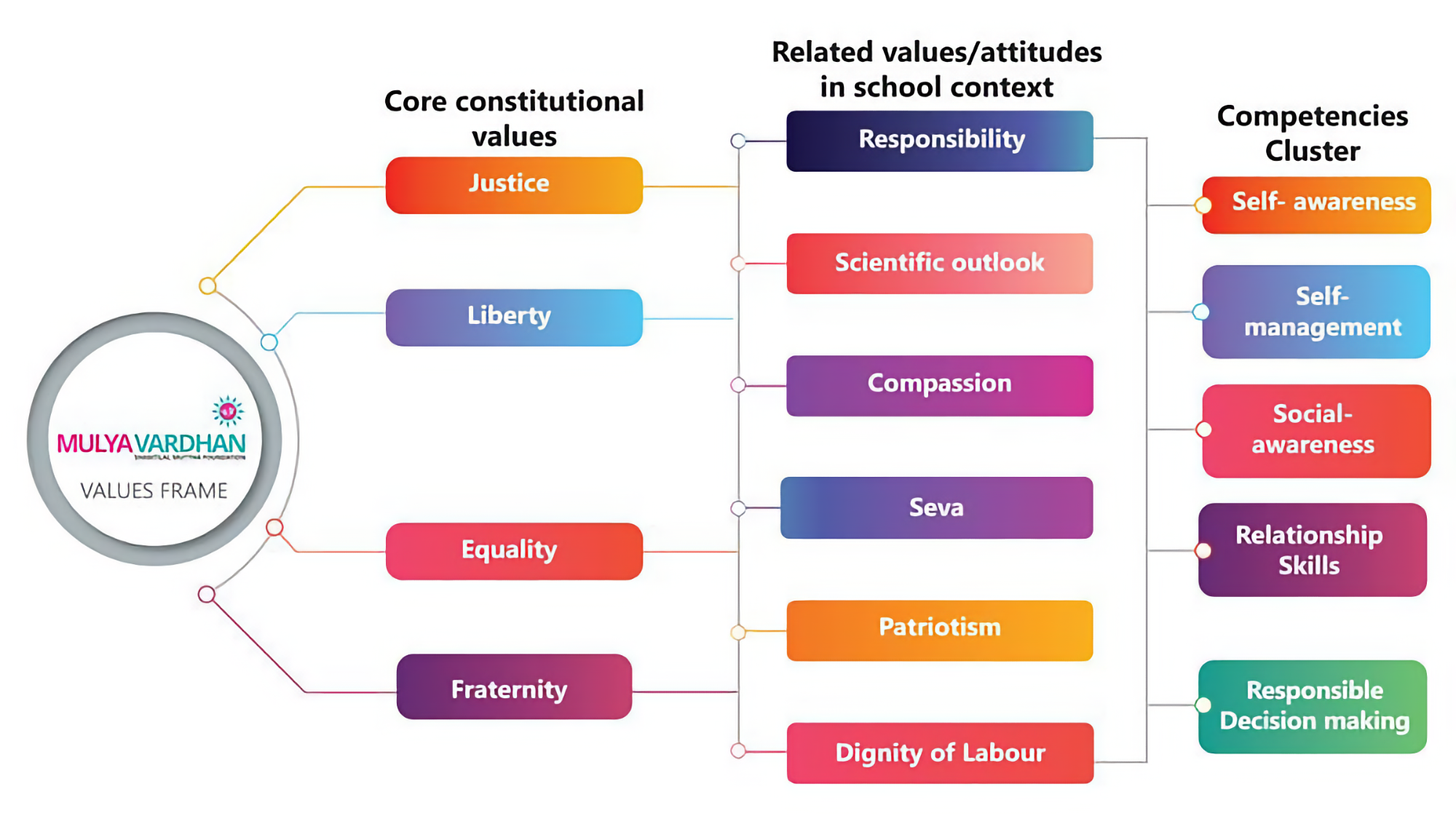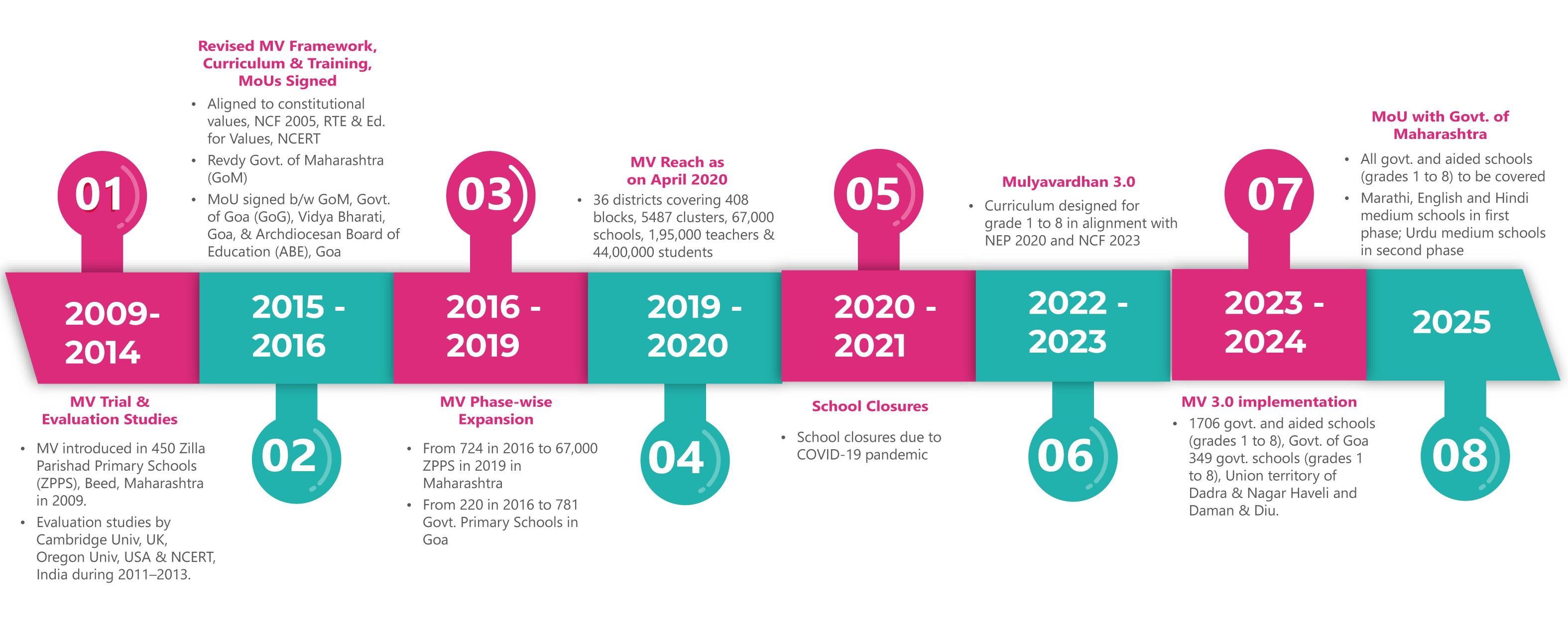Mulyavardhan is a dynamic academic initiative focused on cultivating values and life skills among school-aged children. Drawing on the latest research in social, emotional, and ethical development (SEED), Mulyavardhan aligns with the values enshrined in the Preamble to the Constitution of India.
Mulyavardhan features meticulously designed and engaging activities for students in grades 1 through 8. These activities cover a broad spectrum of themes, including self-awareness, responsible behaviour, positive relationships, and social responsibilities.
Mulyavardhan supports students in achieving competencies outlined in the National Curriculum Framework (NCF) 2023.













